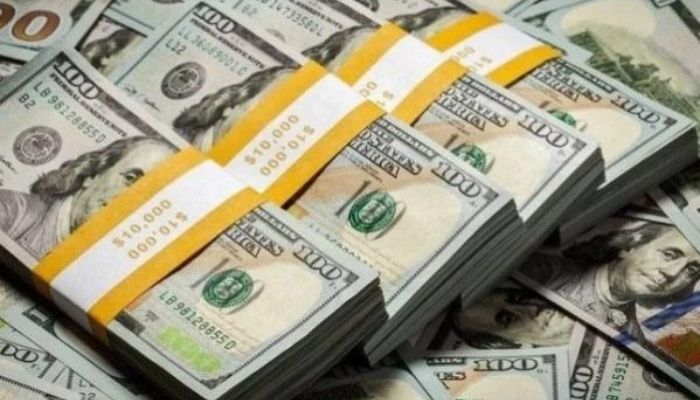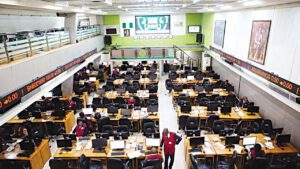
External reserves record marginal decline after retail dollar sales
Nigeria’s external reserves have recorded a marginal decline of 1.16 percent ($430 million) in the last two weeks since the Central Bank of Nigeria (CBN) reintroduced the retail Dutch auction in the foreign exchange (FX) market.
Data from the CBN showed that the foreign currency reserves dropped to $36.44 billion on Thursday August 22, 2024 from $36.86 billion on August 6, 2024.
The CBN undertook the sale of foreign exchange (FX) to end users through a Retail Dutch Auction System (rDAS) to reduce the demand pressure in the FX market and promote price discovery on Tuesday, August 06, 2024.
A total of $1.7 billion was sold to the retail end users through the deposit money banks in two Dutch auctions conducted by the apex bank.
Head of Financial Institutions Ratings at Agusto Consulting, Ayokunle Olubunmi, attributed the recent decline in Nigeria’s external reserves to a seasonal surge in demand for FX.
Speaking on the current state of the reserves, Olubunmi emphasised that various factors, not just Central Bank interventions, play a role in fluctuations.
“I do not think the intervention should be the only reason because if you check the last auction, what they sold was not up to a billion dollars,” Olubunmi explained.
He pointed out that the CBN has other obligations beyond FX sales, which impact the reserves.
The Nigerian government has spent $2.19 billion in five months between January and May this year in debt service payment, according to data from the CBN.
Comparing the reserves to a bank account, Olubunmi noted, “External reserves are like a bank account; money will go out, and go back inside.”
He highlighted that the current period—July through September—is typically marked by high FX demand due to various factors, including school fees payments, summer travel, and businesses stocking up.
“This is a period when the demand for FX is high. People going to school will buy their school fees. People are going for summer, and businesses want to stock up. If you look at demand over the year, it’s around July, August, and September that we have had the highest demand for FX, and it reduces over time,” Olubunmi stated.
Olubunmi further emphasised that the decline in reserves during this period is not unexpected. However, he remains optimistic about the future, especially with the potential inflow from the $500 million dollar bond planned by the Federal Government.
“By the time it becomes successful, it will also make the reserves come up,” he said.
CEO of the Promotion of Private Enterprise, Muda Yusuf, attributed the reserves situation to fluctuations in inflows and the frequency of the CBN interventions. He also discussed the potential impact of the recently proposed dollar bond on the economy and its attractiveness to certain investors.
Speaking on recent changes in the CBN’s intervention strategies, Yusuf noted, “I think the first statement was to announce a change in their intervention method to the Dutch auction. It’s not that any time they want to intervene, they will issue a statement.”
Regarding the external reserves, Yusuf emphasised that the reserves’ levels are determined by various factors, primarily the inflows. “It depends first on the inflows. If the inflows are dropping, the reserves will begin to go down,” he explained.
He pointed out that Nigeria’s main inflows come from the Nigerian National Petroleum Corporation (NNPC), remittances, portfolio inflows, and foreign loans.
“When they borrow money, they spend Naira, and the dollar equivalent will go into the reserves. So, I think it is a function of the inflows,” Yusuf added.
Yusuf highlighted potential reasons for a decline in inflows, particularly from the NNPC. “It’s either that inflows are dropping particularly from the NNPC, if it’s not remitting. You know, the NNPC has done a lot of forward crude sales, then you have securitisation of crude, the money they have borrowed upfront,” he said.
He suggested that an increase in the frequency of CBN interventions could lead to higher outflows, which would deplete the reserves if not matched by corresponding inflows.
“Maybe they are intervening now more frequently. That means the outflows will increase. When outflows increase more than the inflows, then the reserves will be going down,” Yusuf explained.
However, he reassured that the decline is not significant enough to cause alarm.
On the topic of the Federal Government’s planned dollar bond, Yusuf downplayed any connection between the bond issuance and bank recapitalisation. “I do not see any relationship between the bond and the bank recapitalisation. It is not likely to have any significant effect,” he stated.




